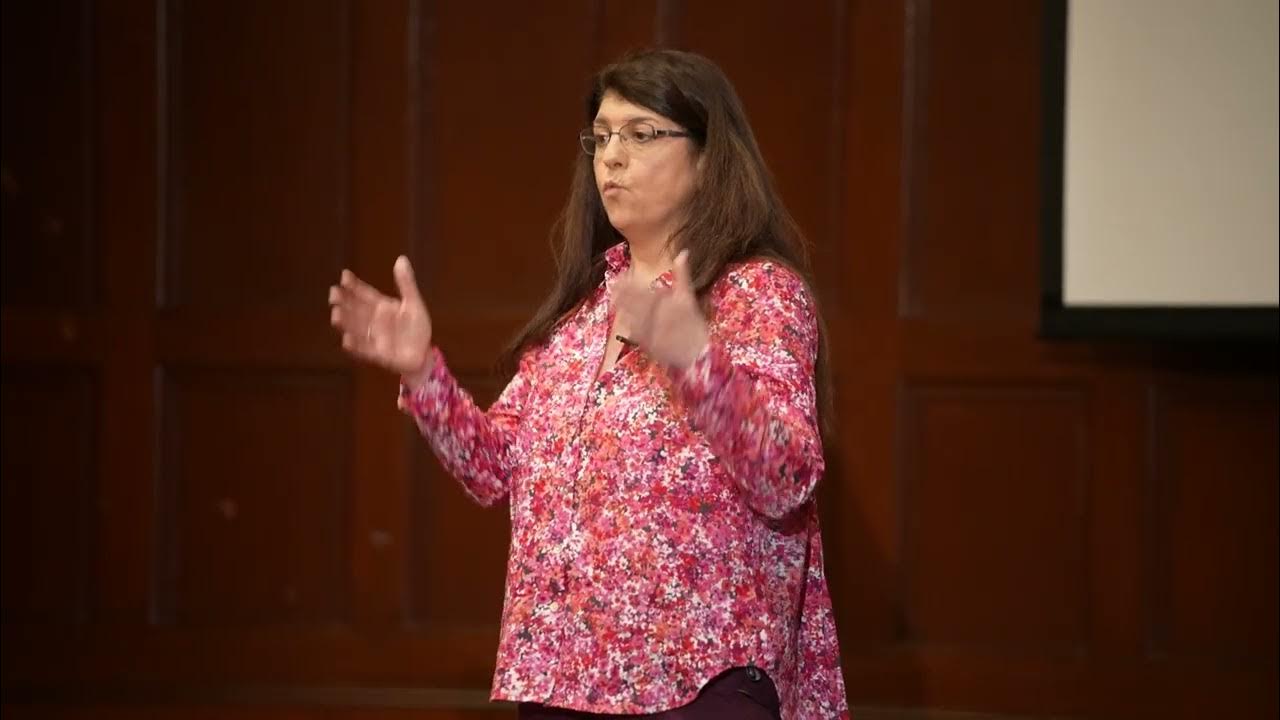How To Be A Good Listener
Summary
TLDRThis video script explores the profound value of listening to others, suggesting that listening can be as enjoyable and insightful as speaking. It challenges the common belief that talking about ourselves is the most interesting activity, emphasizing that true pleasure lies in understanding ourselves through self-clarification. Listening to others, especially when guided by the skills of a good editor, can reveal universal truths about the human experience. Drawing on literary examples like Proust and Carver, the script illustrates how listening can deepen our emotional intelligence and offer new perspectives on our own lives.
Takeaways
- 😀 Listening to others can be as pleasurable as speaking about ourselves, as it helps us understand ourselves better.
- 😀 We often believe that talking about ourselves brings the most pleasure, but the true satisfaction lies in self-clarification through conversation.
- 😀 Listening to stories, like those in literature, can teach us valuable lessons about ourselves.
- 😀 Great writers master the art of telling stories that resonate universally, not just personally.
- 😀 Our lives are interesting if we learn to narrate them effectively, focusing on emotions and universal themes.
- 😀 Often, we get caught up in irrelevant details when narrating, which makes the story less engaging.
- 😀 The key to a compelling story is to focus on feelings and unpack them rather than just recounting events.
- 😀 Good listeners act like editors, guiding the conversation and helping others shape their stories into meaningful narratives.
- 😀 A good listener doesn't just passively hear, but actively helps the speaker highlight emotions and universal aspects of their story.
- 😀 Listening isn't a passive task; it's an active, creative process of shaping and understanding someone else's life, just like editing a story.
- 😀 A well-told story, shaped by a good listener, can reveal universal truths and help both the speaker and listener better understand themselves.
Q & A
What is the main idea of the transcript?
-The transcript emphasizes the idea that listening to others can be as pleasurable and insightful as talking about oneself. It highlights the importance of listening in understanding oneself and others, comparing it to the art of editing stories to uncover universal truths.
Why does the script argue that listening is often undervalued?
-The script argues that listening is undervalued because people tend to believe that talking about themselves is the most interesting thing, while hearing others is seen as boring. This view limits the potential of conversations to provide self-understanding and emotional connection.
How does the script redefine the pleasure of talking about oneself?
-The script suggests that the true pleasure of talking about oneself lies in self-clarification and gaining a deeper understanding of one's thoughts, feelings, desires, and future actions, rather than merely hearing one's own voice.
How do novels relate to the art of listening according to the script?
-The script draws a parallel between listening to novels and listening to people in real life, stating that novels are stories from others that help us understand ourselves. By listening to others' stories, we often uncover universal truths that resonate with our own experiences.
What does Marcel Proust say about novels and self-understanding?
-Marcel Proust writes that every reader of a novel is, in effect, reading their own life and gaining a better understanding of it through the perspective provided by the novelist.
How does the script address the perceived lack of interest in ordinary people’s stories?
-The script suggests that people around us are more interesting than we often believe, and that the key to finding interest in their stories lies in learning how to listen and extract the universal aspects of their experiences.
What is the role of 'great writers' in making their stories universally relevant?
-Great writers have mastered the art of turning their personal experiences into stories that contain universal dimensions, making their specific anecdotes resonate with a wider audience by focusing on emotions and universal themes.
What are the common mistakes people make when narrating their stories?
-People often focus on irrelevant factual details, get overwhelmed by emotions without unpacking them, shy away from emotional depth, and fail to maintain focus, leading to digressions that make their stories less engaging.
How can listeners help improve the quality of the stories they hear?
-Listeners can act like editors by encouraging storytellers to focus on emotional depth, asking questions to explore feelings, and steering them away from digressions to keep the story coherent and impactful.
What lessons can be learned from the relationship between Raymond Carver and his editor Gordon Lish?
-The relationship between Raymond Carver and Gordon Lish illustrates the power of active listening and editing in storytelling. Lish helped Carver focus on universal themes and emotional depth, transforming his personal experiences into stories that resonate globally.
Outlines

This section is available to paid users only. Please upgrade to access this part.
Upgrade NowMindmap

This section is available to paid users only. Please upgrade to access this part.
Upgrade NowKeywords

This section is available to paid users only. Please upgrade to access this part.
Upgrade NowHighlights

This section is available to paid users only. Please upgrade to access this part.
Upgrade NowTranscripts

This section is available to paid users only. Please upgrade to access this part.
Upgrade NowBrowse More Related Video

कम बोलने की ताकत जान लो । 8 Qualities of LESS SPEAKING PEOPLE | Motivational Video

【要約】頭のいい人が話す前に考えていること【安達裕哉】

Improve your listening - why not understanding is the key to getting fluent

How To Never Be Boring In Conversation

Active Listening. How to be a great listener.

Mindfulness, What is it really? | Marie Ficociello | TEDxMcphs
5.0 / 5 (0 votes)